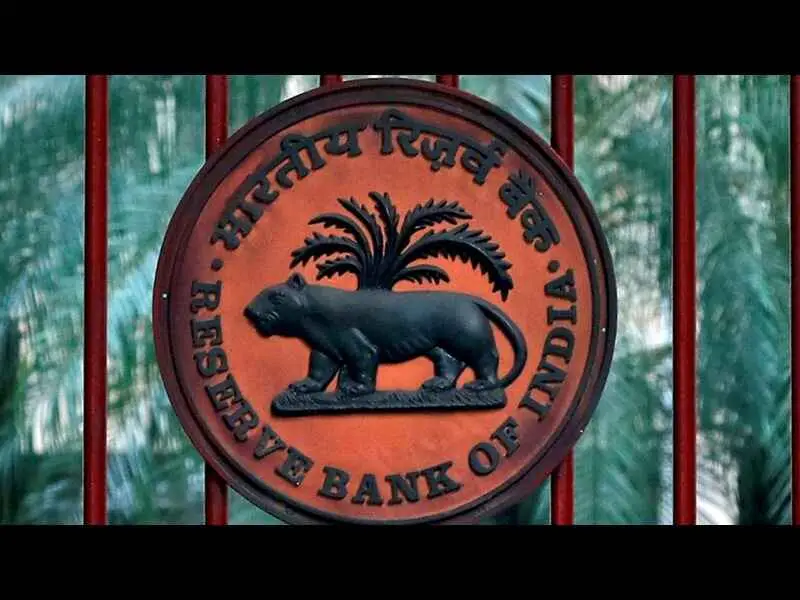Cryptocurrencies, such as Bitcoin, Ethereum and Dogecoin, have been gaining popularity and value in recent years, attracting investors and enthusiasts from all over the world. However, not everyone is convinced of their merits and potential. In fact, some authorities have expressed serious concerns and criticisms about these digital assets.
One of them is the Reserve Bank of India (RBI), the central bank of the country, which has been vocal about its opposition to cryptocurrencies. In a panel discussion organized by IIM-Kozhikode on February 16, 2024, P Vasudevan, an executive director at the RBI, stated that cryptocurrencies cannot be referred to as “currencies” as they have no underlying value .
“Crypto currencies cannot be called currencies as they don’t have any underlying value,” he said, adding that ultimately it is a call that the government has to take on how to tackle cryptocurrencies .
The RBI has been critical of new-age currencies like bitcoins, saying they pose systemic risk to the financial systems. The central bank has also banned banks and other regulated entities from dealing with or providing services to any individual or business dealing in virtual currencies .
However, the Supreme Court of India overturned this ban in March 2020, ruling that it was unconstitutional and violated the right to trade . Since then, the cryptocurrency market in India has witnessed a surge in activity and growth, with millions of users and hundreds of platforms operating in the country .
The government, on the other hand, has been ambiguous about its stance on cryptocurrencies. While it has not banned them outright, it has also not given them any legal recognition or protection. Moreover, it has proposed a bill that seeks to prohibit all private cryptocurrencies and create a framework for an official digital currency issued by the RBI .
The bill, however, has not been tabled or passed yet, leaving the fate of cryptocurrencies in India uncertain and unclear. Meanwhile, investors have to pay tax on the income earned by trading in them .
Cryptocurrencies are based on blockchain technology, which is a decentralized ledger that records transactions and ensures their validity and security without the need for intermediaries or central authorities. Supporters of cryptocurrencies argue that they offer advantages such as transparency, efficiency, innovation and financial inclusion.
However, critics point out the drawbacks and challenges of cryptocurrencies, such as volatility, scalability, environmental impact, cyberattacks, illicit activities and regulatory issues. They also question the intrinsic value of these digital tokens, which are not backed by any physical asset or sovereign guarantee.
The debate over cryptocurrencies is likely to continue as more countries and institutions adopt or reject them. The future of these new-age currencies will depend on how they evolve and adapt to the changing needs and expectations of the users and regulators.
To add more detail to this article, we can include some examples of how cryptocurrencies have performed in the market, how different countries have regulated them and what experts have said about them. For instance:
- According to CoinMarketCap , a website that tracks the prices and market capitalizations of various cryptocurrencies, Bitcoin reached an all-time high of $69,899 on November 10, 2021 , while Ethereum reached $4,858 on November 11 , 2021 . Dogecoin , a meme-inspired cryptocurrency that started as a joke , peaked at $0.74 on May 8 , 2021 .
- Different countries have adopted different approaches to regulating cryptocurrencies. Some countries , such as China , Russia and Turkey , have banned or restricted their use , citing concerns over financial stability , money laundering and national security . Other countries , such as Japan , Switzerland and Singapore , have embraced them and provided legal frameworks for their development and innovation . Some countries , such as the US , UK and Canada , have taken a more balanced approach , allowing their use but imposing rules and regulations to protect consumers and investors .
- Experts have expressed diverse opinions on cryptocurrencies. Some experts , such as Elon Musk , Jack Dorsey and Mark Cuban , have endorsed them and invested in them , believing that they are the future of money and technology . Other experts , such as Warren Buffett , Jamie Dimon and Nouriel Roubini , have dismissed them and warned against them , calling them bubbles , scams and disasters
Recent Blog : Two-Wheeler Market: Hero MotoCorp CEO’s Growth Forecast
